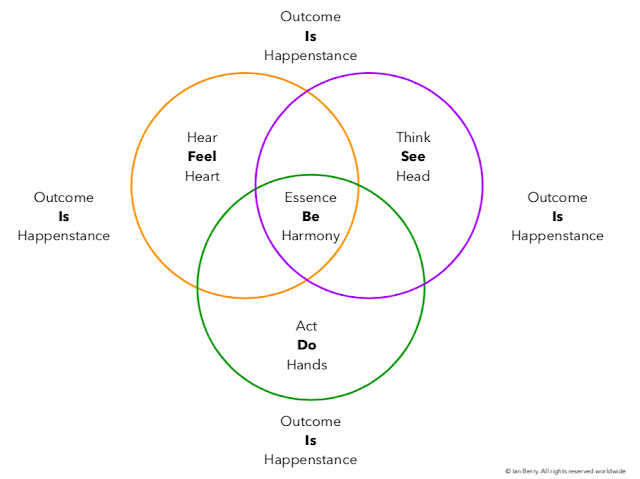‘The Checklist Manifesto: How to Get Things Right’ by medical doctor Atul Gawande wonderfully illustrates how checklists save lives.
We know that DC (during corona) following a 6 point checklist has saved lives.
I’m sure you’ve seen a version of the following
1. Wash your hands often.
2. Avoid close contact.
3. Cover your mouth and nose with a cloth face cover when around others.
4. Cover coughs and sneezes.
5. Clean and disinfect.
6. Monitor Your Health Daily.
Once not even doctors washed their hands. As the good doctor points out in his book this cost many lives. Importantly doctors adopting the practice as routine has saved many lives.
In operating theatres a leader calls time out to check that everything is in place and all instruments etc are accounted for. This simple checklist has saved many lives and many pre and post operation disasters.
In my work I use checklists for many things to ensure that I never leave anything important or vital out of interactions and transactions. I encourage my clients to adopt checklists as a matter of normal practice. Many report the well-being impact on people as well as financial savings and rewards.
Here’s two examples:
The Future Manifesto
Manifesto’s make great checklists. I use The Future Manifesto in a number of ways. One way is to choose one or more of the 10 guiding principles as an overarching theme for my work over a set period of time. For example while writing my Heart-Leadership book June - August 2020 I chose principles 1., 4. & 7. (see below).
So every morning before beginning to write I check-in with these three principles and align my intention through hearing my heart and then asking my head. I then engage my hands and write.
“The 10 guiding principles
1. Focus on inspiration more than motivation.
2. Jump from competition to collaboration.
3. See what emerges when you dance with fear, ambiguity, and not-knowing.
4. Discover the inner energy of your breath and your heart.
5. Your health and that of the world are one.
6. Start your mission to be kinder than necessary.
7. Create something humanity really needs.
8. Move from measurement into the universe of possibility.
9. Join the infinite game and become a compass and guiding star.
10. Take this as a time of opportunities, unique in our history.”
The Career and Life-calling Card
Discovering our life’s work is one of the most fulfilling quests we can achieve. I recommend creating a checklist like the career and life-called card below and reviewing it at least twice a year to see where you’re at and where you could move to.
According to Gallup and many other leading researchers into employee engagement, most of the world’s employees are not fully engaged in their work.
There are many reasons for this disaster.
Often overlooked is the fact that millions of people aren't able or allowed to do what they love in the service of people who love what they do. Hence they're disengaged. A career and life-calling card helps.
I’m am very grateful to the works of Joseph Campbell, Ken Robinson, Steven Farber, Daniel Pink, and Hector Garcia and Francesc Miralles for their work in the area of vocation/work/mission/purpose.
The concept of “Follow your bliss” from Joseph Campbell in ‘Hero of a thousand faces’ has always resonated with me since I first read the book over 30 years ago. It means "doing what we can't not do."
In an excellent book ‘The Element - how finding your passion changes everything’, Ken Robinson says about the element “the place where the things we love to do and the things we are good at come together.”
“Do what you love, in the service of people who love what you do.” Steven Farber in ‘The Radical Leap’ is perhaps my favourite line of all time when it comes to meaningful work.
What drives us according to Daniel Pink in ‘A Whole New Mind’ and ‘Drive - the surprising truth about what motivates us.’ Is the three factors below:
“Autonomy: the urge to direct our own lives
Mastery: the desire to get better and better at something that matters
Purpose: the yearning to do what we do in the service of something larger than ourselves”
The Japanese say everyone has an ikigai. The French call it raison d’etre. In their beautiful book ‘Ikigai The Japanese Secret to a Long and Happy Life’, Hector Garcia and Francesc Miralles quote from people born in Okinawa, the island with the most centenarians in the world - “our ikigai is the reason we get up in the morning.”
All of these works and from my own experience in working with people to find their essence I conclude that our life’s work, our reasons for being is found at the intersection between Can do, Will do, Love to do, and People who love what I do.
I recommend creating a one-page visual checklist Career and Life-called Card where you would feature your answers the following questions:
Can Do
What do I know?
What are my key skills?
What is my real expertise?
How do I practice what I know?
Will do
What is my attitude to living?
What am I really committed to?
How can I be more disciplined in taking action?
How I am really different from others who do what I do?
Love to do
My purpose in life is?
I am passionate about?
I find Joy in?
My art is?
My essence is?
People who love what I do
How do I
Serve others?
Help people achieve what is important to them?
Solve people’s problems?
Offer solutions to people’s challenges?
Exchange value with other people?
Deliver value to other people?
Do Your Work.
Be remarkable.
Ian













